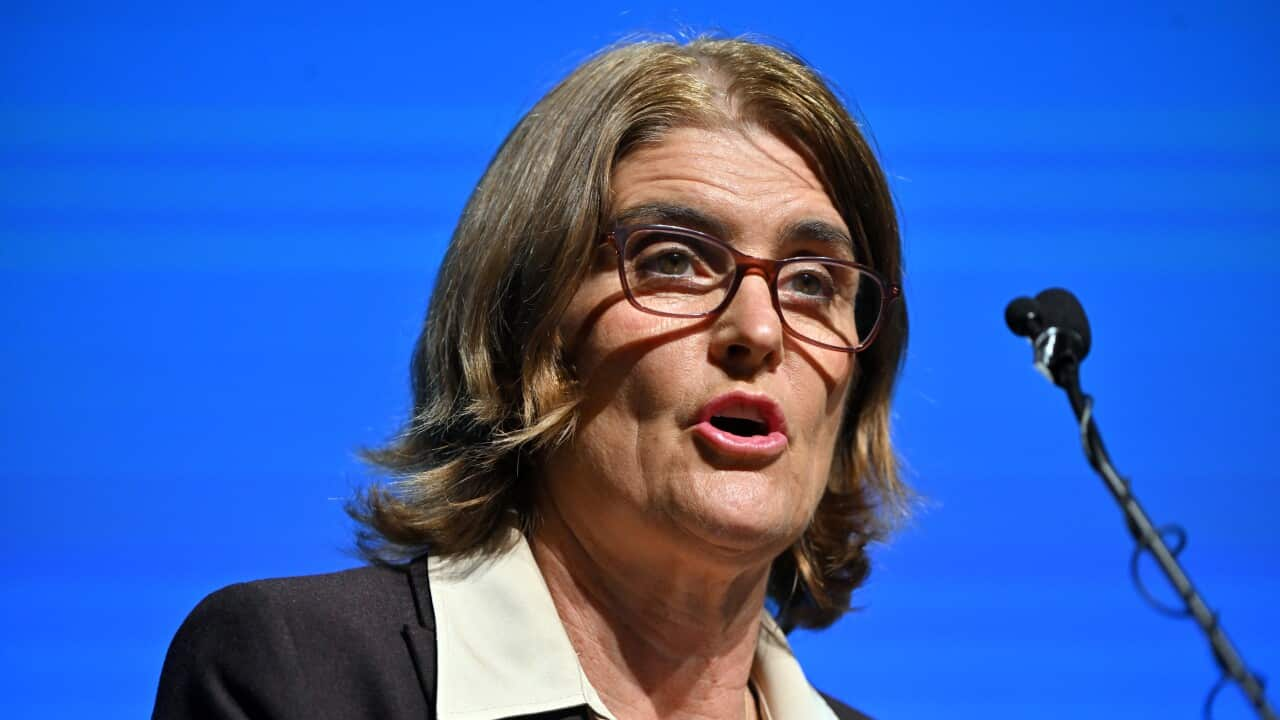Tim and Rebekah Smith’s on their mortgage had been at about 2.5 per cent since the couple moved into the house they had built in Perth’s southern suburbs in 2016.
So when the fixed rate period came to an end in March and the on their mortgage jumped to 6.5 per cent, they had to come up with $800 more each month to cover the payments.
"Since we got the mortgage we've had two kids, there was that additional cost there, so we were already stretched thin, so it was quite a large hit to the budget," Tim Smith said.
What is the mortgage cliff?
The Smiths are not alone in experiencing what's called the 'mortgage cliff': a sharp increase in one's monthly home loan repayments when the fixed interest period on their loan ends.
Research shows those who have recently come to the end of their fixed interest rate term, or will soon, could need to find a thousand extra dollars a month to meet repayments.
Home loan repayments are taking up a bigger portion of household incomes, after the Reserve Bank of Australia increased the cash rate from 0.1 per cent to 4.1 per cent between May 2022 and June 2023.
While some mortgagees initially avoided the financial impact of rate increases due to having fixed interest rates, about a million fixed-rate loans in Australia have since reverted to lenders' standard rates. Hundreds of thousands will follow over the next 12 months.

An increasing amount of household incomes are going towards paying mortgages. Source: Getty
From record lows to financial woes
Fixed interest rates are usually offered for a period of between one and five years in Australia and are an alternative to variable rates, which can fluctuate with the cash rate.
led to low interest rates on mortgages, around the 2 per cent mark, meaning greater borrowing capacities.
However, those who borrowed on the higher end of their capacity may not have the financial capacity to comfortably adjust their budget to a 4 per cent increase in interest rates, unless their financial position has greatly improved in that same period.
When fixed-rate loans revert to a lender's standard rate, the interest rate could potentially go from something with a two in front of it to something with a six in front of it.
Mortgage stress increasing in Australia
Consumer research from financial comparison site Mozo shows one in six Australians are having to fork out 40 to 60 per cent of their monthly household income to cover their mortgage.
Mozo spokesperson Rachel Wastell said when repayments exceed 30 per cent of a household income, these households are considered to be under "mortgage stress".
"Thirty-nine per cent of homeowners admitted to paying more than 30 per cent of their monthly household income to their home loan lender," she said.
"Spending half of a household's monthly income on a home loan may seem staggering, however, the shift from the COVID-era of ‘free money lending’ and ultra-low rate loans to much higher rates in such a short space of time means that this stress is not entirely surprising."

Source: SBS News
"We cut back on things like going out, eating out. We had to be mindful of any spending, put off holidays and had to juggle the bills coming in as they have also gone up," Smith said.
What to do if you are under mortgage stress?
Steve Mickenbecker, group executive and commentator from financial comparison site Canstar, said there are steps financially stressed borrowers can take to try to make their budget work.
"Tracking money coming in and money going out of the household budget is a must at these times as there are savings available in the big bills, like insurance, phone, internet, loans and power, and in everyday spending," he said.
"There are short-term measures that can be undertaken with the help of the lender, like extending the term of the loan, moving to an interest-only period or a repayment holiday.
"However, it is important that borrowers talk to their lender and consider getting advice from the government’s National Debt Helpline."
Mickenbecker stressed measures should be treated as short-term and borrowers should aim to reverse them voluntarily when possible.
could likely find themselves unable to refinance to a lower interest rate loan because lenders see them as a greater risk.
Smith said he was thankful he and Rebekah had not stretched their finances further than they did when they purchased their home, or they may not be in the position they are now.
"We made sure we didn't borrow right to max, we actually could've borrowed a lot more but we didn't," he said.
Reducing the risk of mortgage stress
Smith said his family was actually lucky compared to some, as they had paid a little extra off their mortgage and combined with increases in property values they had a good amount of equity in their home.
That equity allowed them to refinance and reduce the interest rate they now pay.
While the Smiths initially tried to get their lender to reduce their interest rate, the bank would only go so far. With the help of a mortgage broker, the Smiths moved their home loan to another lender who offered them a rate of 5.49 per cent.
Their broker also helped them consolidate a couple of personal loans they had taken out for improvements to their home into their mortgage.
"It's got our expenses down to almost where we were on the lower rates," he said.
Mickenbecker said a record number of Australians were switching lenders.
"In August, the value of loans refinanced to a new lender was 12.6 per cent higher than a year ago," he said.
Where to from here for interest rates?
While the Reserve Bank has kept rates on hold for the past few months, another rate hike could occur before the end of the year.
Wastell said it could be spring 2024 before rates drop.
"Westpac, ANZ and NAB are all betting on a rate cut from September onwards, and the latest cuts to one and two-year fixed-rate home loans across the market support this view."
When commenting on the so-called mortgage cliff in September, Treasurer Jim Chalmers said he understood higher interest rates were putting pressure on family budgets.
"We monitor these pressures closely and we know people are under the pump," he said.












